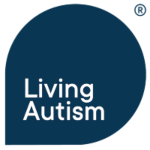Membership review for Options The Thicket
By – Date of visit:
The membership review is intended to reflect the experiences of the visitor who might be looking for a placement. The review is subjective, consistent and impartial, representing the impressions of our team member on the day of the visit. It is a snapshot view only.
The contents of this review are intended to cover some of the subjects and issues which an individual, their relatives or their placement officer might ask.
This review has been published with the written agreement of the home owner, or an authorised representative of the company.
“Since the last Living Autism visit in December 2011, The Thicket has achieved NAS Accreditation thus demonstrating that understanding autism is at the heart of the person-centred planning for the ladies.”
Summary of findings
I found The Thicket to be a tranquil, well-run home set in beautiful surroundings. The home was for female residents only at the time of my visit; however, one of the residents was to leave shortly and I was told that a male individual would be considered for the future. The Thicket is autism specific in terms of the individuals that reside there. There are good connections to the community and to a variety of resources both within and outside the Options Group, meaning that there is the best available input going into that individual's care. I found staff to be very personable and friendly.
The information set out in The Thicket’s profile was also found to be correct as stated.
First impressions
The Thicket’s setting is quite idyllic in terms of the environment and one immediately gets the feeling of space. I turned into The Thicket through an open gate and parked in a small car park to the rear of the main building. I was shown to the main office by a member of staff. The Thicket is a four bedded home and has no reception as such.
The Registered Manager, Ann Hall was unavailable at the time of my visit, due to other commitments although I did meet with her briefly as I was looking around towards the end of my visit.
My time was spent in the company of Team Leader, Hayley Smith.
The Environment (External)
The grounds surrounding The Thicket are extensive although this is not immediately apparent as timber outbuildings divide the main garden area from the field.
Large gates lead to a steep drive which goes directly to the rear of the property where there is parking space for several cars.
From the front, The Thicket looks as though it is a single storey building but once at the rear it is clear that there is another storey below. Views from both sides are spectacular and very hilly.
The out-buildings are divided into several rooms. These consist of a Snoezelen, an arts and crafts room, an office and a newly equipped hydro-pool/therapy room.
The garden is mainly lawn but with a flower bed surrounding. They are neat and well presented.
The Environment (Internal)
The house is divided into flats. Two of the ladies live on the ground floor and each had personalised their rooms to their own taste. The colours chosen were pastel shades, although I was told that the ladies could choose any colour according to their preference.
The upstairs flats are similar although I did not see one area as the lady occupying it was not inclined to have visitors on the day.
One person has the capacity to make quite complex decisions about how she wants her room decorated and what items and possessions she has in there. The other individuals are able to make some decisions. Lockable drawers are available in all of the ladies' bedrooms, but none are used as such because none of the individuals have the capacity to understand the concept. One person does not like pictures or many objects in her room due to her quite pronounced sensory sensitivities. All the ladies have a quiet space where they can spend time if they are anxious.
The rooms were cosy and very typical of the flats of young people with a lot of possessions such as photos, CDs, videos and craft equipment.
The Wider Environment
Three of the ladies residing at The Thicket attend external colleges several days a week. Two go to Armley College a few miles away. One travels on City Council transport and the other is taken by staff in her motability vehicle. Travelling separately manages the anxieties of both ladies to the best advantage.
Another lady attends a new centre in Otley, just a short distance from The Thicket. In both centres the individual needs and wishes of the ladies form the basis of their programmes.
The Thicket is conveniently situated for a wide range of leisure activities being in the heart of rural Yorkshire yet a short car journey from the city of Leeds.
Understanding Autism
Since the last Living Autism visit in December 2011, The Thicket has achieved NAS Accreditation thus demonstrating that understanding autism is at the heart of the person-centred planning for the ladies.
The ladies of The Thicket have very complex needs including challenging behaviour, epilepsy, difficulties in communication and sensory issues.
Staff and residents are supported by the clinical team consisting of a Speech and Language Therapist, Psychologist and Autism Advisor, Geoff Evans, which is principally based at the sister service, AALPS North at Scunthorpe.
Each lady has a communication profile and a sensory profile developed by the clinical team. Communication is supported through symbols and objects of reference which are visible around their living accommodation and in their programmes.
As the ladies have been living at The Thicket since it opened and there has been no vacancy since, the transition process has not really been tested. However, Hayley told me that when one of the ladies leaves shortly the referral process is likely to consist of: The Registered Manager together with the Head of Adult Services gathering information and deciding whether The Thicket can meet the needs of the referred person. Upon receipt of funding, the transition of the individual will be guided by need with photos and visits prior to the admission date.
Plans are reviewed in house three monthly with a further review held six monthly to which social workers, parents, day centre staff and the clinical team are invited.
Health and Wellbeing
The ladies are registered with the local GP surgery which is sympathetic to the difficulties experienced by people with autism. If the patient cannot come to the surgery due to her anxiety, the GP is happy to visit the home.
The ladies are also registered with a local dentist who has an interest in people with special needs.
One lady has epilepsy and has had several seizures. Staff are trained to manage the condition safely.
Medication is stored in accordance with CQC and NMC guidelines and is checked by senior staff regularly. Staff showing an interest in career development and who want further responsibility are trained to order, dispense and store medication.
The ladies are encouraged to eat a healthy diet and are given a choice from two main dishes every day. The menus have recently been reviewed and are changed on a regular basis.
Individuals living in the home
All ladies living in the home have a diagnosis of autism and have lived together for some years. One is to move out shortly as her mother is setting up a home for her and her disabled brother.
Staffing
Staffing levels at The Thicket are determined by the needs of the individuals. Staff vacancies are advertised in the local job centre and through the company’s internal e-mail.
DRB checks and two satisfactory references must be obtained before a staff member can commence induction training which takes place over two weeks.
The main focus of training is centred around understanding autism but also includes statutory subjects such as Health and Safety, Fire Safety, Safeguarding, Epilepsy.
Each staff member has to receive training in physical intervention for their protection and that of others. The system used is PRICE (Protecting the Rights of Individuals in a Caring Environment).
Every staff member is given a company handbook containing amongst other information, copies of the most relevant policies and procedures. These are also available on the company’s on-line portal.
After the induction period is complete, staff spend one to two weeks shadowing more experienced staff before they are permitted to work with the ladies unsupervised.
Supervisions take place every four to six weeks during which discussions take place regarding progress, difficulties or personal issues.
Once the six month probation period is completed, staff are then encouraged to complete the Diploma in Health and Social Care level two.
Extra responsibility in the form of becoming a keyworker is available for those who want it.
Opportunities for promotion are advertised internally within the organisation.
Management of the Home
I was informed that the Registered Manager has an open door policy for staff to discuss any issues of concern.
There is a system in place to debrief staff who have been involved in incidents of aggression
caused by anxious individuals.
All activities are risk assessed and protocols put in place to manage difficult situations. These are reviewed annually or as required.
It was clear that the needs of the individuals form the basis of all activities and programmes which take place in the home. The ladies are given choices about all aspects of their lives as far as it is possible given their complex needs.
Conclusion
The Thicket offers a very stable, autism-focused environment. Onsite facilities are good and are continuing to be developed. The needs of the young women at The Thicket appear to be being met and all appear to have made positive progress since living there. There are positive links with the local community both in terms of additional support and in terms of activities. The fact that there is such an array of ‘in house’ clinical expertise to call on is a bonus.
Visiting Officer: Pat Clendining
Head of Assessments, Living Autism

